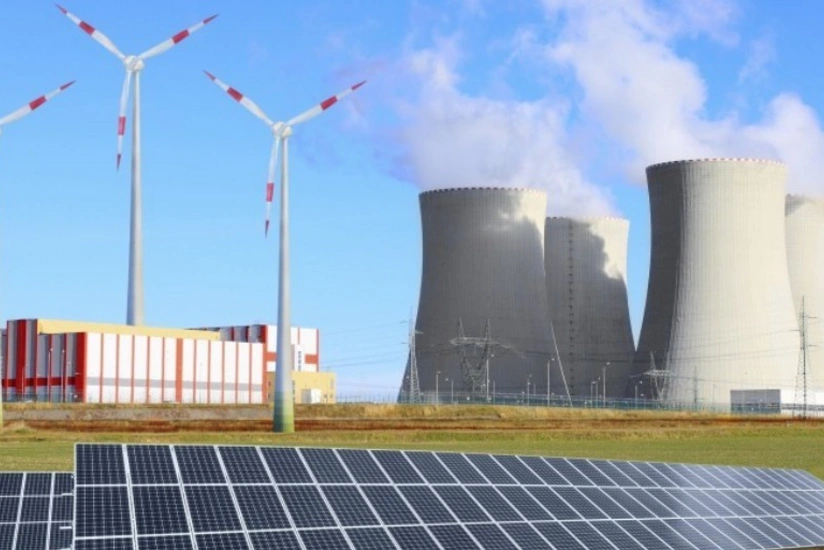Global challenges in energy: diversification
- 23 September, 2019
- 13:50

"Every country should pay attention to diversification and security in energy issue," Kent D. Logsdon, Principal Deputy Assistant Secretary, Bureau of Energy Resources, U.S. Department of State, said at a meeting with journalists in Austin, Texas.
Today, alternative solutions in energy are actual for both countries having access to energy and producing hydrocarbon. In this sense, many countries pay attention to diversification, take certain steps so they don’t depend on one source, same type of energy.
The issue of diversification of energy sources, types and transportation routes were one of the key topics at a tour on ‘Energy Security is National Security’ organized by the U.S. Department of State bureau of Energy Resources and Foreign Press Centers, which was attended by the journalists of a number of countries.
Kent D. Logsdon spoke about the importance of energy security and underlined the diversification: "Every country should pay attention to diversification and security. Dependence on one source and same energy is always a threat to any country. Energy security is an issue that it must be perceived as a national security."

He also noted that the Bureau of Energy Resources supports diversification and one of its goals is to ensure energy security of the U.S. and its partners by supporting diversification of energy sources, transportation and routes.
At the event ‘Advanced Energy Course’ held in the University of Texas at Austin, diversification of energy types, use of Texas methods in use of renewable energy, diversified portfolio of the energy system were discussed, and it was noted that the energy is important in US national security and main factor in the global diplomatic efforts of the country.
Texas is one of the main centers of the US on oil and gas production and export, however, renewable energy of the country.

Use of renewable energy in Texas
Becky Klein, Principal of Klein energy LLC, an energy consulting company based in Austin, Texas, says that although Texas continues to export oil and gas, it will consume more renewable energy.
According to her, Texas consumed 376 billion kWh of energy in 2018, up 5% from 2017. 44.4% of energy consumption fell to share of gas, 24.8% of coal, 18.6% of wind power, 10.9% of nuclear energy, 1.3% of other sources. In 2019, 52.4% of generation capacity of the State was formed by natural gas, 23.4% by wind power, 15.9% by coal, 5.4% by nuclear energy, 2.1% by solar energy and 0.9% by other sources.
Senior energy reporter for the Wall Street Journal, author of ‘Superpower’ Russel Gold thinks that the share of renewable energy and natural gas in the U.S. energy balance will increase. According to him, renewable energy sources in the balance is close to 10 percent, nuclear energy to 20 percent, coal to 20 percent, while natural gas accounts for the remaining part: "I think the share of coal will continue to decline, nuclear energy will drop slightly."

What is the situation in Azerbaijan?
Despite being oil and gas exporter, Azerbaijan attaches importance to diversification and takes certain measures for development of renewable energy sources in order to increase the share of renewable energy in the energy balance of the country, achieve energy security by diversifying energy sources, effectively use the renewable energy sources potential and apply promoting mechanisms in this field.
Azerbaijan takes steps for preparation of legislative framework for renewable energy sources, determination of zones of the renewable energy sources and cooperation with potential investors.
"Relevant measures are being taken for fulfillment of tasks given upon the Azerbaijani President’s order #1209 on acceleration of reforms in energy sector dated May 29, 2019’. A bill on ‘Use of renewable energy sources in electricity production’ has been developed.
Azerbaijan’s total energy production capacity is 7,546 mWh. Capacity of the power stations on renewable energy sources, including large hydro power stations, is 1,276 mWh, which makes 17% of the total capacity. 92% of electricity is generated from natural gas. The share of renewable energy sources in electricity production is 8%. This figure is planned to reach 30% by 2030.
General economic potential of the renewable energy sources in Azerbaijan is estimated at 26,940 mWh. The highest economic potential is estimated at 23,040 mWh in solar power. The economic potential for wind power is 3,000 mWh, for hydropower – 520 mWh, for bioenergy – 380 mWh and 40 thermals for geothermal energy.
Proposals have been prepared for promotion of use of renewable energy sources, creation of favorable investment atmosphere in this field and support of private entrepreneurial activity. Azerbaijan is cooperating with international companies on development of renewable energy.

Support from US
Kent D. Logsdon said that US can cooperate in the process run by Azerbaijan for wider use of renewable energy sources.
According to him, US has a enough experience in renewable energy field: "US has diversified energy sources, as well as renewable energy sources."
He also noted that they could discuss what frame would be better for involvement of US companies in Azerbaijan on renewable energy sources.





